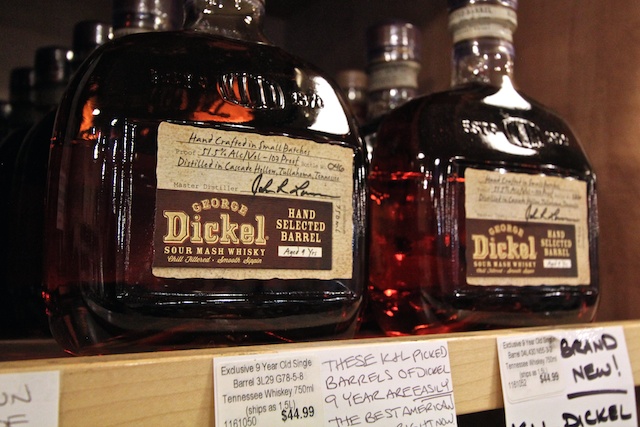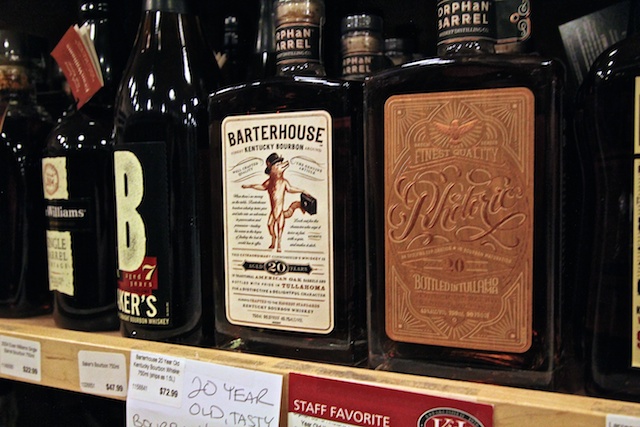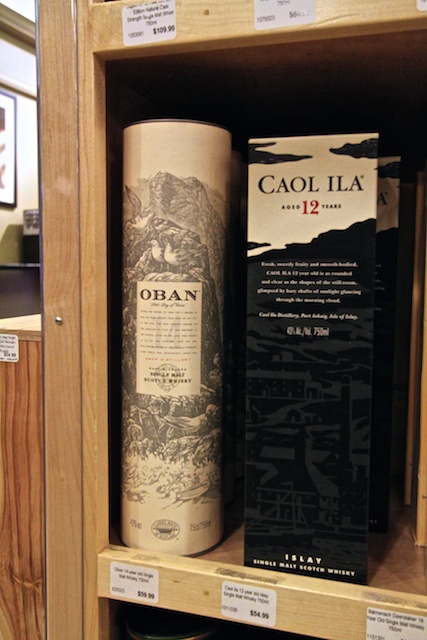Focus on the Positive — Part I

There was a point a few years ago when I was really upset with Diageo. I made no sercet about it on this blog, and I made light of several frustrating incidents that went down at that time. It was a message that resonated with others as well, and I've continued to see that rather sardonic mindset carried on via other online commentaries. What I learned over time, however, was that many of these discouraging events were not actually perpetrated by Diageo, but rather by some of their suppliers on the local side. Much of what goes down behind the scenes has to do with importation and distribution, rather than the producer themselves. When cooler heads prevailed, I managed to get acquainted with a number of the guys working the California market and since then it's been nothing but clear sailing. I've had only positive experiences with Diageo since the beginning of 2013, and I appreciate it when a company works hard to mend fences. There seems to be a lot of disgruntled whiskey people out there who love to bitch, but don't like to give credit where credit is due. In my opinion, when a company works hard to address the complaints of its customers, it's a good sign.
Nevertheless, with the announcement of Diageo's upcoming 2014 release of special edition whiskies, the conversation is once again back to the incredible price tags. There are nine new single malt expressions that are going to run you hundreds, if not thousands of dollars; and that's if you're lucky enough to find them. But high prices for luxury items is hardly a Diageo-only condition. LVMH, Edrington, Pernod-Ricard, Campari, Beam/Suntory, and even family-owned distilleries like Glenfarclas are all jumping on the high-priced express; releasing their own ultra-premium releases like the $180 Supernova, the $250 Redbreast 21, and the $1000 1964 Glenfarclas Family Cask. Personally, I don't have a problem with $2000 Brora or $3000 Port Ellen because it's not like I was going to buy them for $500 and $800 a piece anyway. Taxing the ultra rich for their luxury goods isn't something I'm losing sleep over. It's when the 12 year olds start doubling in price that I have a problem. That being said, no company has done more in 2014 to maintain the value and the quality of the mid-range market than Diageo. Considering the price-to-quality ratio is 90% of what drives most whisky buyers, this is nothing to sneeze at.

Pappy 23 sells for at least $250. Elijah Craig 23 is $199. The last time we had a Willett 20 year old in stock it was $200. Hell, our most recent cask of Willett 10 year old sold for $109.99 because they doubled the price on us at the last minute. 20 year old Bourbon is like liquid gold right now, so much so that companies are changing their price points on a bi-monthly basis. So Diageo gets their hands on a mountain of 20 year old Bernheim (and they even told us exactly where they got it from) and decides to sell it for sub-$100? That sounds too good to be true. Yet, it's exactly what they did, and with all the nationwide competition to be the low-price leader among retailers, the prices have dropped even lower. We're now at $72.99 for the Barterhouse and $87.99 for the Rhetoric, and both of those whiskies are solid. I have distillers in here every week buying bottles for themselves after we meet for tasting appointments. They shake their heads and say, "I can't believe they're giving this stuff away for those prices." Michter's, who does not reveal the source of their whiskey, sells their 20 year Bourbon for $450, and personally I don't think it's any better than the Rhetoric. Yet, the Orphan Barrel series has not caught on with many insiders. Let's see: tons of availability, easy to get, total transparency, outstanding value, great packaging. Am I missing something? Is it that they're too easy to get?
Meanwhile we've seen no price increases on Bulleit Bourbon, Bulleit Rye, Bulleit 10 year, or any of the George Dickel products. The single barrels of 9 year old expressions we've been able to sell for $44.99, while Four Roses just recently raised the price of their private single barrel selections to $65. Heaven Hill and Buffalo Trace have since paused their retailer barrel programs due to lack of supply.

With the exception of LVMH (which is partially owned by Diageo anyway), I can't think of another single malt producer who hasn't significantly raised their prices over the past year besides Diageo. Lagavulin 16, Caol Ila 12, Oban 14, Dalwhinnie 15, Talisker 10, and even the latest release of Oban 18: all right where they've always been. Meanwhile Yamazaki 12 went from $34.99 to $49.99. Laphroaig 10 went from $34.99 to $42.99. Aberlour just took a hit from Pernod-Ricard (so expect an increase there shortly), and Macallan 18 went from $120 to $199. Say what you want about quality, NAS releases, mis-information, shady marketing, or whatever else it is that bothers you about large whisky companies, one thing you can't say about Diageo is that they're gouging you.
Obviously there are other factors that go into purchasing a whisky: the people, the history, the story, the rarity, and the intrigue. That being said, there's something to consistency as well and dependability. There's a lot to dislike about the corporate whisky structure, but if price is important to you there are few companies holding the line more than Diageo right now. It appears that all our bitching worked, so that's something to be happy about, not frustrated with.
-David Driscoll
